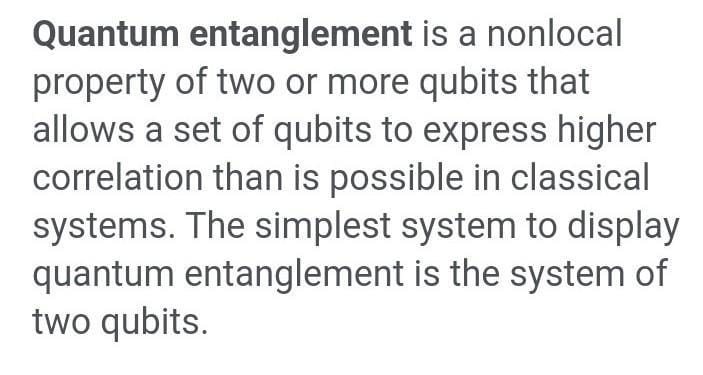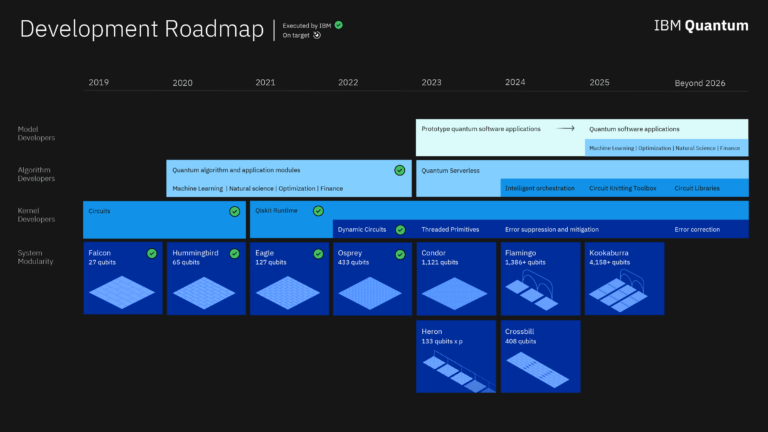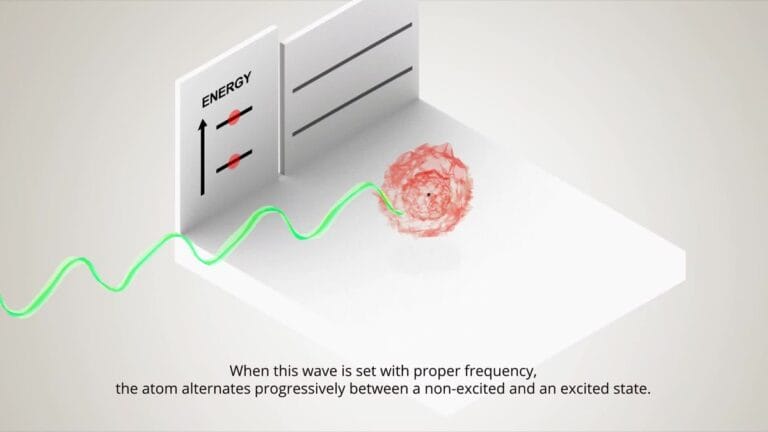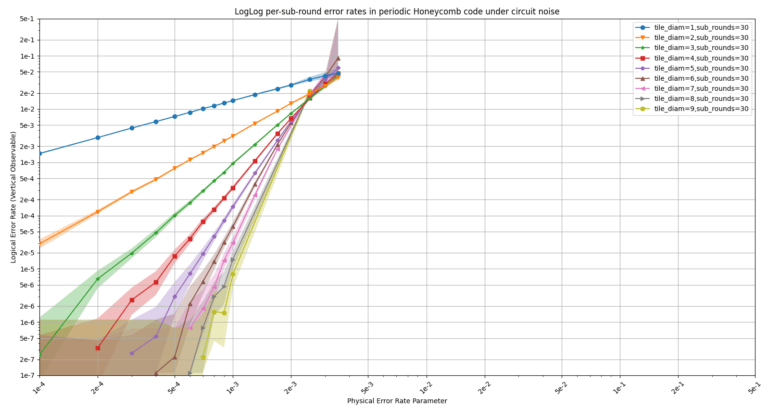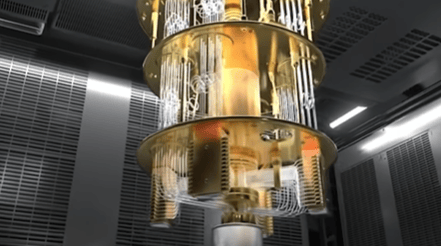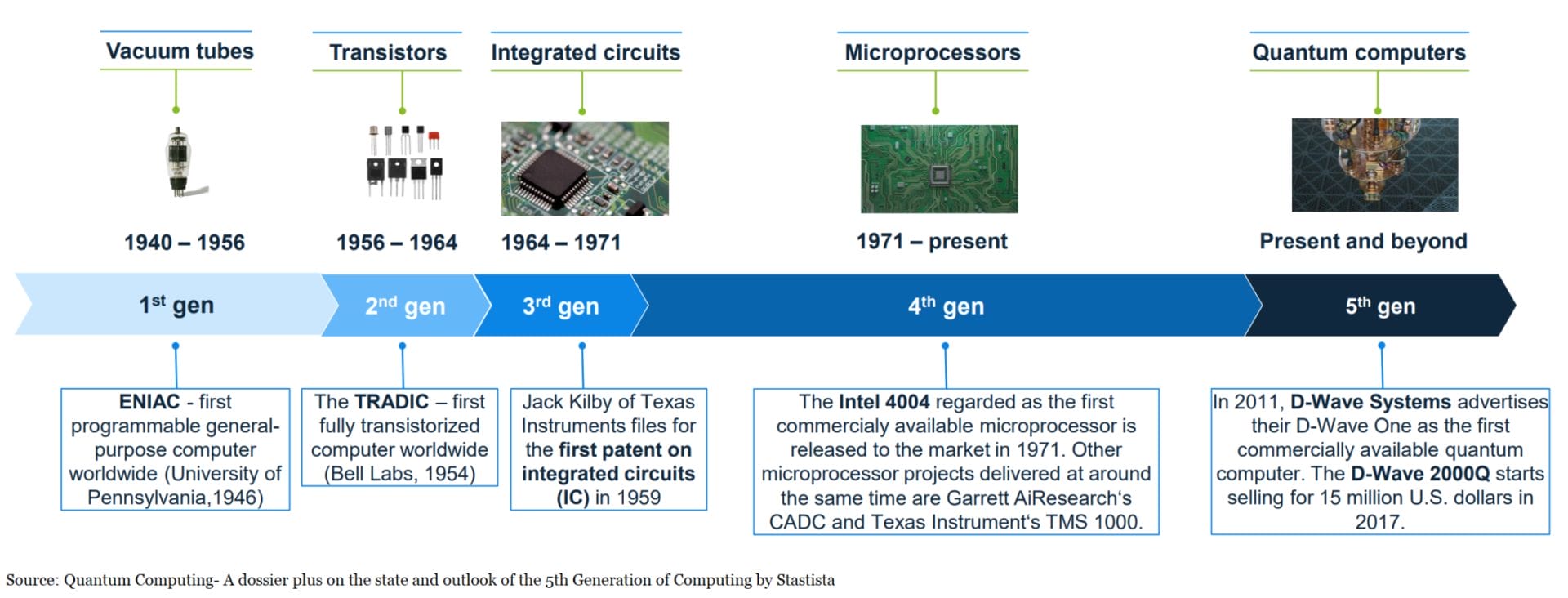
Welcome to the world of quantum computers: the paradigm shift in modern computing! ????
In today’s fast-paced digital age, computers have become an integral part of our lives. But have you ever wondered what the future holds for computing? Enter quantum computers, the next big thing in technology.
Quantum computers are not your ordinary machines. They harness the mind-boggling principles of quantum mechanics to process information in a completely different way than classical computers. Sounds like science fiction, right? Well, get ready to be amazed!
These cutting-edge machines hold the promise of solving complex problems that are currently beyond the capabilities of classical computing. From advancing scientific research to revolutionizing cybersecurity and optimizing complex systems, quantum computers have the potential to reshape the world as we know it. So buckle up and get ready to dive into the exciting world of quantum computing!
Quantum computers are revolutionizing the world of technology. With their extraordinary processing power, they offer a paradigm shift in modern computing. Embracing quantum mechanics, these machines have the potential to solve complex problems and improve various industries. From healthcare to finance, quantum computers can accelerate breakthroughs and drive innovation. Discover the limitless possibilities of quantum computing and get ready for a new era of advanced technology.

Quantum Computers: The Paradigm Shift in Modern Computing
Quantum computers are revolutionizing the world of computing, ushering in a new era of possibilities and capabilities. As researchers and scientists continue to make advancements in this field, the paradigm shift in modern computing becomes increasingly evident. In this article, we will delve into the world of quantum computers, exploring their unique properties, potential applications, and the challenges they present. Join us on this journey as we unpack the intricacies of quantum computing and its impact on the future.
The Fundamentals of Quantum Computing
Quantum computers operate on the principles of quantum mechanics, a branch of physics that describes the behavior of matter and energy on a microscopic scale. Unlike classical computers that utilize bits, which represent information as either a 0 or a 1, quantum computers use quantum bits or qubits. Qubits can exist in superposition, meaning they can be in a state of 0 and 1 simultaneously. This property allows quantum computers to perform certain calculations exponentially faster than their classical counterparts.
The Power of Superposition
Superposition is a fundamental property of qubits that enables quantum computers to perform multiple calculations simultaneously. While a classical computer would need to execute each calculation sequentially, a quantum computer can explore all possible solutions at once. This gives quantum computers an immense advantage when it comes to solving complex problems and searching large databases.
Furthermore, qubits can be entangled, a phenomenon that allows the state of one qubit to affect the state of another, no matter the distance between them. Entanglement enables quantum computers to process information in a highly interconnected and parallel manner, leading to even greater computational power.
The Challenges of Quantum Computing
While the potential of quantum computing is vast, there are significant challenges that researchers face in harnessing its power. One of the main obstacles lies in maintaining the fragile states of qubits. Quantum systems are extremely sensitive to noise and disturbances from the environment, causing errors in calculations. Scientists are actively working on methods to improve the stability of qubits, such as using error-correcting codes and implementing quantum error correction techniques.
Another challenge is the scalability of quantum systems. As qubits increase, so does the complexity of controlling and manipulating them. Developing reliable methods for scaling up quantum computers remains an ongoing area of research, with promising advancements being made in areas like trapped-ion and superconducting qubits.
Advancements in Quantum Computing Research
Quantum Supremacy: A Milestone Achievement
One notable milestone in the field of quantum computing is the concept of quantum supremacy. Quantum supremacy refers to the point at which a quantum computer can solve a problem that is beyond the reach of classical computers. In 2019, Google claimed to have achieved quantum supremacy by demonstrating that its quantum computer, Sycamore, performed a calculation that would take even the most powerful supercomputers thousands of years to complete.
This achievement marks a significant step forward in the development of quantum computers and showcases their potential to tackle complex problems that were previously infeasible. However, it’s important to note that practical applications of quantum computing are still in the early stages and further research is needed to fully harness its power.
Applications of Quantum Computing
Quantum computers have the potential to revolutionize various industries and fields of study. Here are some notable applications:
1. Cryptography and Security
Quantum computers have the ability to break certain encryption algorithms that are currently used to secure sensitive data. Conversely, they can also contribute to the development of quantum-resistant cryptographic algorithms, ensuring the security of data in a post-quantum world.
2. Optimization and Simulation
Quantum computers excel at complex optimization problems, such as optimizing supply chains, scheduling, and route planning. They can also be used to simulate quantum systems, providing insights into the behavior of molecules, materials, and chemical reactions with unprecedented accuracy.
3. Machine Learning and Artificial Intelligence
Quantum machine learning algorithms have the potential to enhance pattern recognition, optimization, and data analysis. Quantum computers can help accelerate the training of artificial neural networks, leading to more efficient and powerful AI systems.
4. Drug Discovery and Materials Science
Quantum computers can simulate the behavior of molecules and materials, aiding in the discovery of new drugs and materials with specific properties. This has the potential to revolutionize the fields of pharmaceuticals and materials science, opening up new frontiers in research and development.
In conclusion, quantum computers represent a paradigm shift in modern computing. With their ability to harness the power of superposition and entanglement, quantum computers have the potential to solve problems that are currently intractable for classical computers. While there are challenges to overcome, advancements in quantum computing research continue to push the boundaries of what is possible. As the field progresses, we can expect quantum computers to transform various industries and pave the way for a new era of advancements and discoveries.
Key Takeaways:
- Quantum computers are the next big thing in modern computing.
- They use the principles of quantum mechanics to perform powerful calculations.
- Traditional computers use bits, but quantum computers use qubits, which can be both 0 and 1 simultaneously.
- Quantum computers have the potential to solve complex problems much faster than traditional computers.
- This paradigm shift in computing has the potential to revolutionize various fields, such as cryptography, drug discovery, and optimization algorithms.
Frequently Asked Questions
Quantum computers have revolutionized modern computing with their unparalleled capabilities. Here are some frequently asked questions about this paradigm shift:
1. How do quantum computers differ from classical computers?
Quantum computers differ from classical computers in their underlying architecture and computing principles. While classical computers rely on bits, which can represent either a 0 or a 1, quantum computers use qubits. Qubits can represent a 0, 1, or a combination of both simultaneously, thanks to the concept of quantum superposition.
This fundamental difference allows quantum computers to perform complex calculations much faster than classical computers for certain types of problems, such as factoring large numbers or simulating molecular interactions. Quantum computers harness the power of quantum mechanics to provide unprecedented computational capabilities.
2. What are the potential applications of quantum computers?
Quantum computers hold tremendous potential in various fields that rely on complex computations. One of the most anticipated applications is in cryptography, where quantum computers may break current encryption methods and necessitate the development of new, quantum-resistant algorithms.
Quantum computers can also revolutionize drug discovery, optimizing molecular simulations and accelerating the development of new drugs. Furthermore, they can enhance optimization problems, enabling more efficient solutions for logistics, financial modeling, and supply chain management. The potential applications span across scientific research, artificial intelligence, weather forecasting, and material science, among others.
3. Are quantum computers widely available for public use?
Quantum computers are still in their early stages of development and are not widely accessible for public use. However, organizations like IBM, Google, and Microsoft have made progress in building and experimenting with quantum systems, offering some level of cloud-based access to developers and researchers.
As technology progresses, quantum computers are expected to become more accessible. Quantum computing as a service and quantum cloud platforms may emerge, providing users with the ability to run quantum algorithms remotely. Nevertheless, it will still take time before quantum computers become as commonplace as classical computers.
4. What are the challenges in building practical quantum computers?
Building practical quantum computers comes with significant challenges. One challenge is maintaining the stability of qubits. Qubits are extremely fragile and prone to errors caused by environmental interference or decoherence. Researchers are exploring different qubit technologies, such as superconducting circuits and trapped-ion systems, to address these challenges.
Another challenge lies in scaling up quantum systems. Currently, quantum computers have a limited number of qubits, restricting their computational power. Building larger-scale quantum computers requires developing error-resistant qubits and improving the overall qubit coherence. Researchers are actively working on addressing these scalability challenges to bring the promise of quantum computers closer to reality.
5. Will quantum computers replace classical computers in the future?
While quantum computers offer unique computational advantages, they are not expected to replace classical computers entirely. Quantum computers excel in solving certain types of problems that are computationally challenging for classical computers, but classical computers will still be more efficient for many everyday tasks.
It is more likely that quantum and classical computers will be used in tandem, forming hybrid systems that leverage the strengths of both technologies. Quantum computers can be utilized as specialized accelerators for solving specific problems, while classical computers continue to handle general-purpose computing tasks. This symbiotic relationship between quantum and classical computing holds great potential for the future of technology.
Summary
Quantum computers are super powerful computers that use quantum bits, or qubits, instead of regular bits. These qubits can represent multiple states at once, which allows quantum computers to perform complex calculations much faster than traditional computers. They have the potential to revolutionize fields like cryptography, drug discovery, and optimization problems. However, quantum computers are still in the early stages of development, and there are many challenges that need to be overcome before they can be widely used.
Despite the potential of quantum computers, there are still many obstacles that need to be addressed. Building a reliable and scalable quantum computer is no easy task, as qubits are extremely sensitive to noise and require precise control and error correction. Additionally, the field of quantum computing is still relatively new, and there is a need for further research and experimentation to fully understand its capabilities and limitations. Nevertheless, with advancements in technology and continued scientific exploration, quantum computers hold the promise of transforming the way we solve complex problems in the future.

